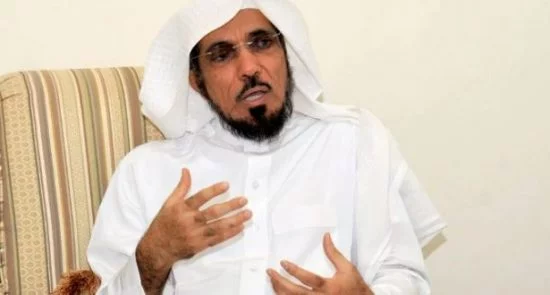Saudi Arabia Seeks Death Penalty in Trial of Outspoken Cleric
Saudi Arabia’s public prosecutor is seeking the death penalty for a prominent Muslim cleric who has criticized the way the monarchy is governed, the Saudi news media and the cleric’s son said Tuesday.
The trial of the cleric, Salman al-Awda, comes after a yearlong crackdown by Crown Prince Mohammed bin Salman, the kingdom’s day-to-day ruler, that has seen dozens of clerics, activists, princes and businessmen arrested and detained on often vague charges.
Human rights groups have said that many of the arrests, like that of Mr. Awda, had more to do with politics than with any activities commonly regarded as crimes elsewhere in the world.
“If you look at the charges, it is clearly politically motivated,” Adam Coogle, who researches Saudi Arabia for Human Rights Watch, said of the case against Mr. Awda.
While Mr. Coogle has seen similar trials, he said it was rare for prosecutors to seek the death penalty in such cases.
“I don’t know how else you could see this but as a clear escalation against Saudi dissidents and activists,” he said.
Saudi officials did not respond to a request for comment on the charges or trial.
Mr. Awda, 62, has been a towering figure in the kingdom’s religious sector for decades, known for keeping his distance from the government in a kingdom where many clerics are mere government mouthpieces.
In the 1990s, he was prominent in a movement of conservatives known as the Awakening that was associated with the Muslim Brotherhood and criticized the Saudi government on religious grounds, including for allowing American troops to enter the kingdom during the 1991 Persian Gulf war.
That activism got him thrown in prison for nearly five years, and his views seemed to evolve after his release. After the outbreak of the Arab Spring uprisings in 2011, he called for elections and separation of powers, ideas the Saudi monarchy feared would threaten its control.
More recently, he has largely avoided commenting on politics in public, using his high public profile to focus more on spiritual matters. He has published a number of religious books and has more than 14 million followers on Twitter.
Mr. Awda’s critics consider him a wolf in sheep’s clothing and accuse him of couching his calls for revolution in religious terms. The leaders of Saudi Arabia, an absolute monarchy governed according to Shariah law, have long considered political Islam like that promoted by the Muslim Brotherhood, a threat to the country’s stability, and to their grip on power.
Mr. Awda’s trial opened on Tuesday at the Specialized Criminal Court in Riyadh, which often hears national security and terrorism cases. He is facing 37 charges, including stirring public discord, going against the ruler and being active in the Muslim Brotherhood — all of which are considered crimes in Saudi Arabia.
He was allowed a lawyer to defend him, and three of his sons attended the trial, according to another of his sons, Abdullah, who is a senior fellow at Georgetown University.
The younger Mr. Awda said by phone that the government had long had a problem with his father’s calls for political changes but had held off on acting against him.
“Now they are taking revenge against all his participation and activism and outspokenness,” he said. But he said the trial was also about sending a broader message to Saudis to keep their criticisms quiet. “Everyone who has some authority and can speak, they will silence him so that he can’t criticize them,” he said.










